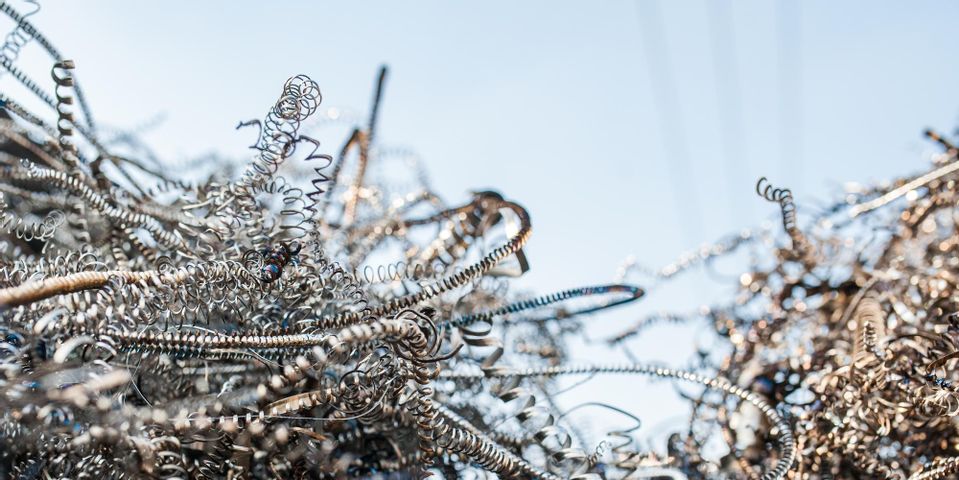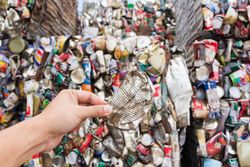
There are a lot of benefits to recycling scrap metal. It puts extra cash in your pocket and helps keep reusable iron, brass, copper, and steel out of landfills. Here is a guide to recycling surplus metal, whether from vehicles, appliances, or construction supplies.
How to Recycle Scrap Metal
Identify the Scrap
Differentiate the materials you’re recycling before heading to a scrap yard. Recyclers pay less for scrap if they have to sort it, and they may misjudge its value.
There are two types of scrap metals. Ferrous metals, including steel, alloy steel, and carbon steel, contain iron. Copper, aluminum, brass, bronze, and lead are nonferrous metals. Because they’re nonmagnetic, these metals are used for electronic and wiring purposes.
 Nonferrous metals have been in use since prehistoric times. Ferrous metals came into use during the Iron Age. Because the supply of ferrous scrap is more abundant, recyclers pay less for it than for nonferrous metals.
Nonferrous metals have been in use since prehistoric times. Ferrous metals came into use during the Iron Age. Because the supply of ferrous scrap is more abundant, recyclers pay less for it than for nonferrous metals.
Facilitate the Process
To recycle scrap metal, sort it into different bins by type. Scrap yards often price loads of mixed metals based on the least valuable metal in the lot. If you separate your scrap, they’ll appreciate the effort, and you’ll get a better price.
Know the Value
Ultimately, scrap yards decide how much they’ll pay for your scrap. If you know the appropriate value of your bunch, you may, perhaps, get a better price by negotiating. In general, scrap copper commands higher prices than steel, aluminum, brass, and lead.
To trade your scrap metal for cash, contact Phipps Auto Parts in Goshen, OH. They have a reputation for paying fair prices for salvaged metals. Their recycling facility accepts both ferrous and nonferrous scrap. Call (513) 722-2034 to speak with the staff or schedule a pickup. To learn more about earning money by recycling scrap metal, visit their website.
About the Business
Have a question? Ask the experts!
Send your question

